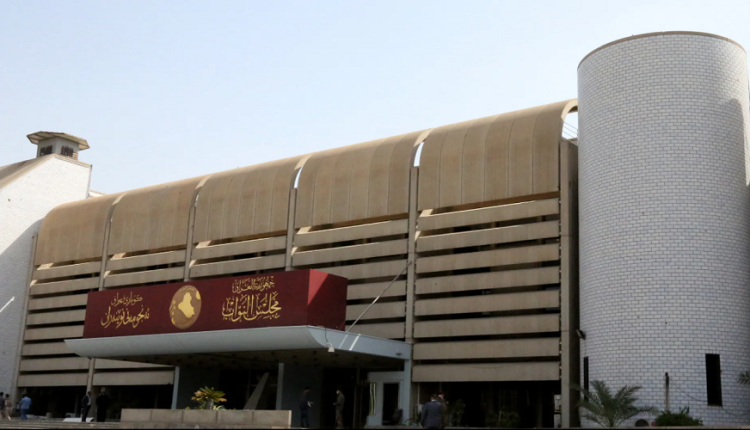The Iraqi oil and gas law is “without an internal agreement” and the Kurdistan Region fears the impact of the external decision
 Shafaq News / Negotiations are continuing between Baghdad and Erbil regarding reaching an agreed-upon formula for the oil and gas law, which extends for 16 years without reaching the age of legislation, while the main Kurdish parties express their “fear” of the impact of an external decision that pushes it not to be legislated in parliament.
Shafaq News / Negotiations are continuing between Baghdad and Erbil regarding reaching an agreed-upon formula for the oil and gas law, which extends for 16 years without reaching the age of legislation, while the main Kurdish parties express their “fear” of the impact of an external decision that pushes it not to be legislated in parliament.
A member of the Patriotic Union of Kurdistan, Nihad al-Khayyat, said in an interview with Shafaq News agency, “This law and other laws passed for years without solutions, and without any clarification to the public opinion about the reasons for not approving this law, despite its association with Iraqi citizens from north to south.”
Al-Khayyat added, “The governments of Baghdad and Ariel must be serious in resolving the dispute over it, as it is linked to the implementation of other laws, such as the federal budget law. Therefore, resolving the law paves the way for resolving long-standing disputed files.”
He pointed out that “the prevailing atmosphere now is better than the previous period, despite the visit of dozens of Kurdish delegations to the capital, Baghdad, to negotiate this issue, and therefore this issue must be resolved before approving the federal budget for the current year.”
Members of the Kurdistan Democratic Party find that the region’s steps are moving day after day towards calm and a statement of goodwill to solve problems and reach partnerships that serve the public interest, but Baghdad has not yet decided to resolve these differences.
Serbest Barzo, a member of the Kurdistan Democratic Party, said in an interview with Shafaq News agency, “The problem about this law and other laws lies in the fact that every four years, and sometimes every year or two, the region faces a new government and new positions from Baghdad, and therefore these problems remain in place.” .
He added, “Although the region has turned dozens of times towards Baghdad with the aim of solving these problems, we expect the presence of external hands from some regional countries pushing to recycle the problems, which makes the problem stagnant.”
Barzo explained, “Baghdad wants to control the region’s oil and at the same time does not want to hand over the region’s share of the budget in accordance with legal standards. In this case, the regional government will be facing a big problem related to the citizens’ sustenance and their monthly salaries.”
He continued, “The regional government, with the resolution of all differences at the negotiating table, without the influence of any external party on the Iraqi decision, and this is evident through the goodwill messages that the region sent to the Baghdad authorities over the past years, at a time when those messages corresponded to cutting people’s livelihoods and filing a legal complaint against the Kurdish people.” “.
The official spokesman for the Kurdistan Regional Government, Jutiar Adel, had announced on February 11, 2023, the arrival of a high-ranking delegation from the regional government to the capital, Baghdad, to resume dialogue on the outstanding issues between Erbil and Baghdad, most notably the Kurdistan Region’s share of the federal budget, the oil and gas law, and other files. of common interest.
The heads of the federal government, Muhammad Shia al-Sudani, and the region, Masrour Barzani, agreed to resolve differences and outstanding issues, including the files of the financial budget for the year 2023 and the oil and gas law in accordance with the permanent constitution of the country.
This came during a meeting that brought them together in the capital, Baghdad, on 11/1/2023.
The oil and gas law is still a matter of controversy in Iraq after talk of preparing for a new version of it, following signs of a dispute over its passage in light of the divergence of opinions about it within the coordination framework.
The oil and gas law, which has been stalled in the Iraqi parliament since its first session until today, is one of the most prominent points on which a preliminary agreement was reached between the two sides, but there are signs of disagreement that may affect the possibility of passing it.
Shafaq.com
